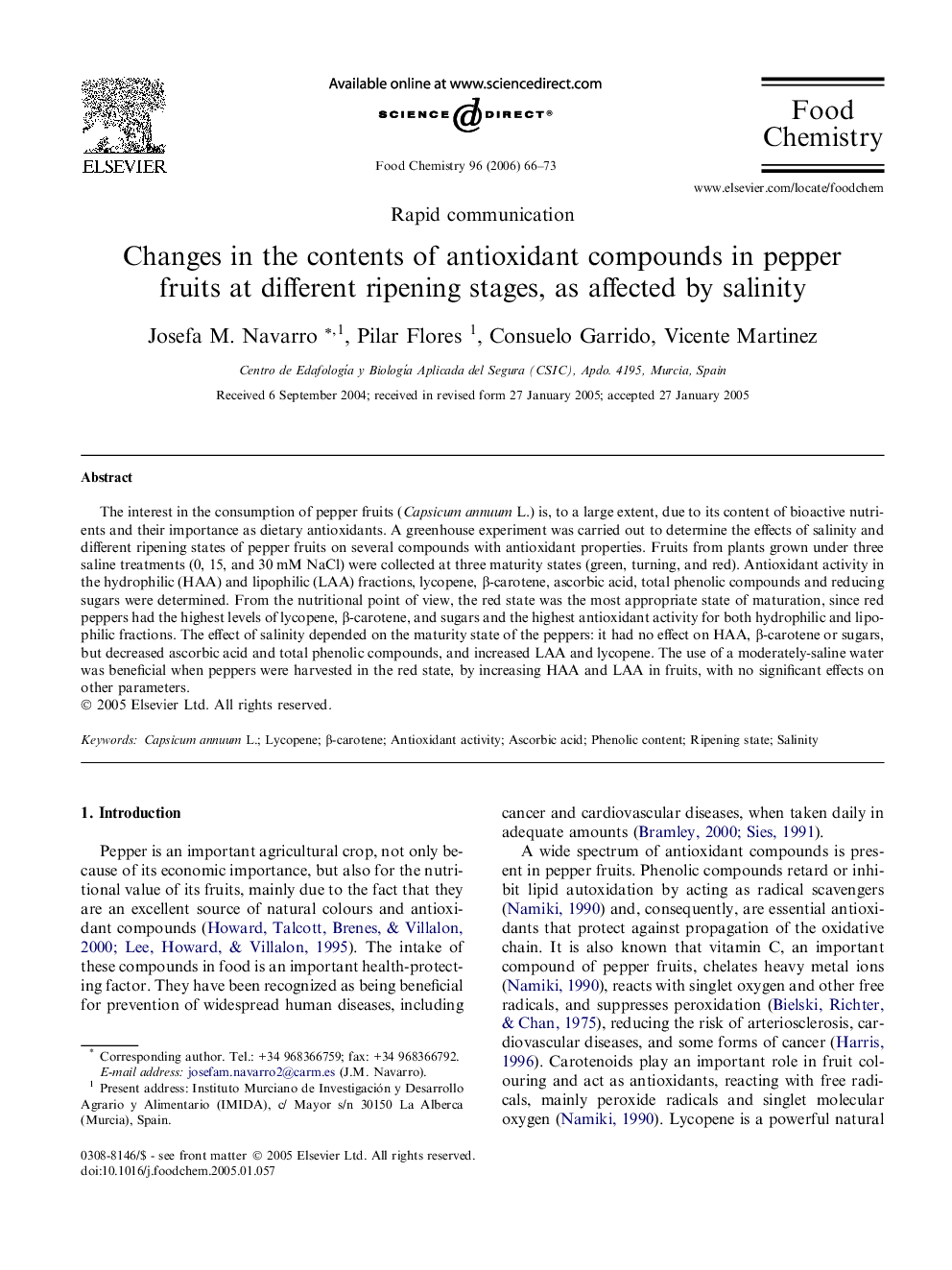| Article ID | Journal | Published Year | Pages | File Type |
|---|---|---|---|---|
| 1191687 | Food Chemistry | 2006 | 8 Pages |
The interest in the consumption of pepper fruits (Capsicum annuum L.) is, to a large extent, due to its content of bioactive nutrients and their importance as dietary antioxidants. A greenhouse experiment was carried out to determine the effects of salinity and different ripening states of pepper fruits on several compounds with antioxidant properties. Fruits from plants grown under three saline treatments (0, 15, and 30 mM NaCl) were collected at three maturity states (green, turning, and red). Antioxidant activity in the hydrophilic (HAA) and lipophilic (LAA) fractions, lycopene, β-carotene, ascorbic acid, total phenolic compounds and reducing sugars were determined. From the nutritional point of view, the red state was the most appropriate state of maturation, since red peppers had the highest levels of lycopene, β-carotene, and sugars and the highest antioxidant activity for both hydrophilic and lipophilic fractions. The effect of salinity depended on the maturity state of the peppers: it had no effect on HAA, β-carotene or sugars, but decreased ascorbic acid and total phenolic compounds, and increased LAA and lycopene. The use of a moderately-saline water was beneficial when peppers were harvested in the red state, by increasing HAA and LAA in fruits, with no significant effects on other parameters.
